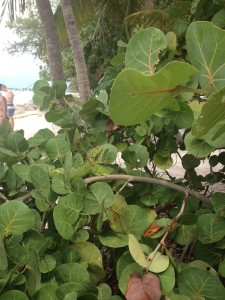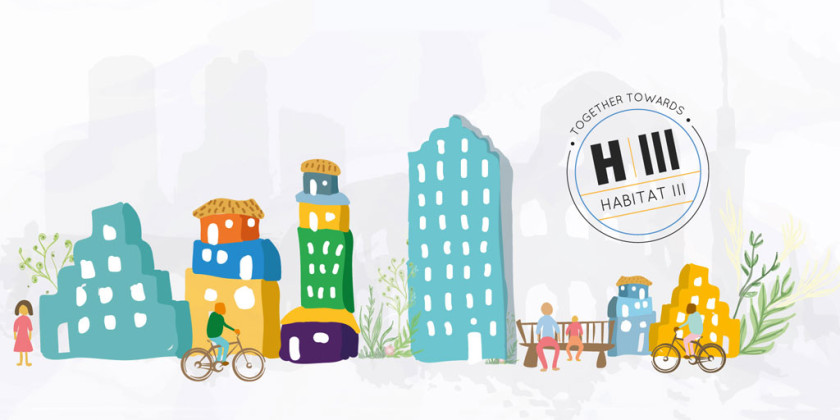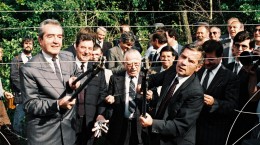We share more than living space when we converge in the city, the town and the village. Public places become part of culture, social interaction and political discourse. They bind and can divide, but make the community richer for the experience, mostly. We should not forget that public places have been sites for lynchings and stoning, but with architecture as art and culture, the better side of humanity is encouraged, including our interaction with the earth and animals.
At Zachary Taylor Historic State Park in Key West, can you spot the iguana who so comfortably has blended into his surroundings at this scenic mecca in the heart of the city?

The first Monday in October every year is observed as World Habitat Day. It sounds like just another one of those designated UN dates, but there is much substance to the initiative: Executive Director of the UN Human Settlements Programme (UN-Habitat) Joan Clos, offered: “the character of a city is defined by its streets and public spaces.”
Public Space is About Inclusion:
UN Secretary General Ban Ki-moon contributed: “Public spaces are crucial for poor and vulnerable citizens. Improving access to them, and making them safe for women and girls, increases equity, promotes inclusion and combats discrimination. High-quality public spaces encourage people to communicate and collaborate with each other, and to participate in public life,” he continued. “Public spaces can also provide basic services, enhance connectivity, spawn economic activity and raise property values while generating municipal revenue.”
Defining the Prosperous City:
“Public space is a vital component of a prosperous city. Well designed and managed public space is a key asset for a city’s functioning and has a positive impact on its economy, environment, safety, health, integration and connectivity. The quality of life for people in cities is directly related to the state of its public spaces. Public space provides room for social and cultural interaction and can foster a sense of belonging and pride in an area. A public space that is open to all, regardless of ethnic origin, age or gender, provides a democratic forum for citizens and society,” added Director Clos. For More on
World Habitat Day:





